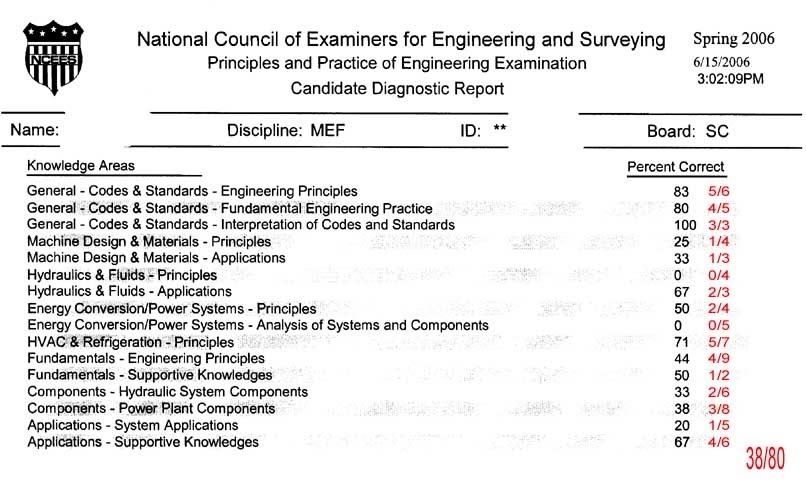Determining the morning distribution is easy, as there are 8 questions for each discipline. Just work backwards using the diagnostic percentages....
The principle is the same for the afternoon, except you don't know the exact breakdown of questions like the morning. Using the percentages again, you can estimate how many problems for each topic, keeping in mind a total number of 40 problems.
Mechanical/Thermal Fluids from NCEES website (an engineer in my office and I found this for him to use) - it's under exam specification or something like that. You have to multiply the % by 40 to get the number of questions in each area......
AM
General - Codes and Standards - Engineering Principles - 6
General - Codes and Standards - Fundamental Engineering Practice - 5
General - Codes and Standards - Interpretation of codes and standards - 1
MD & Materials - Principles - 5
MD & Materials - Applications - 2
Hydraulics & Fluids - Principles - 3
Hydraulics & Fluids - Applications - 4
Energy Conversion/Power Systems - Principles - 4
Energy Conversion/Power Systems - Analyses - 3
HVAC - Principles - 7
PM
Fundamentals - Engineering Principles - 9
Fundamentals - Supportive Knowledges - 4
Components - Hydraulic System Components - 6
Components - Power Plant Components - 8
Applications - System Applications - 10
Applications - Supportive Knowledges - 3






















